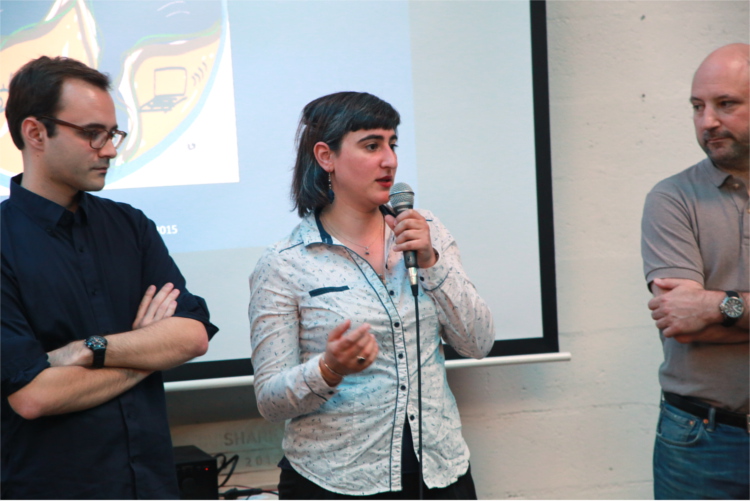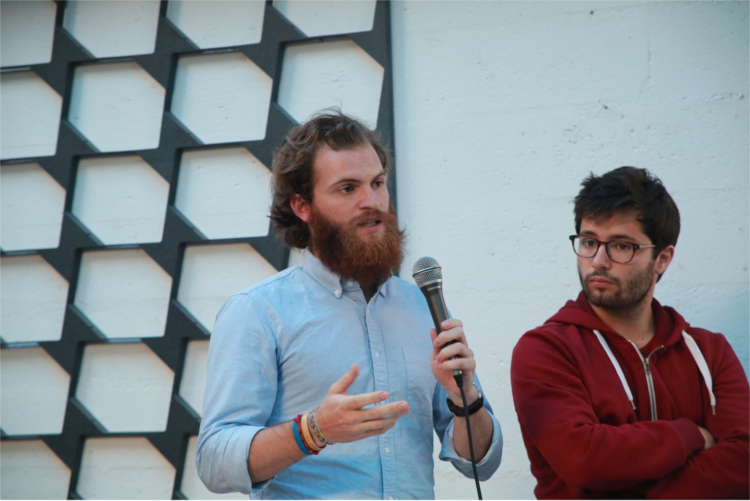How about some liquid democracy?
Published 15 June 2015 by Robin Lambert
On June 9, the French chapter of Democracy OS came together under the premise of open democracy. How? By using open platforms and open code to boost citizen participation.
Ever since the German Pirate Party adopted it in 2010, liquid democracy has been making waves. This way of deciding by continuous vote was adapted to an accessible open source platform by Democracy OS, a nonprofit organization founded in Buenos Aires in April 2012 that has since proliferated around the world, including a local section in France.
This French branch organized its second meet-up in Paris on June 9. After inviting Pia Mancini, director and founder of Democracy OS, on May 21, the second meeting spotlighted initiatives to make democracy more accessible.

Nobody is above the law
The first part of the evening was dedicated to initiatives that popularize law. One notable presentation was Parol‘s visualization of legal texts, which highlighted the latest changes. Jurist Olivia Zarcate’s Imagidroit website is inspired by “jurigraphist” Miroslav Kurdov‘s legal infographics on his SketchLex site since 2011. The idea is to explain law visually and intuitively using playful charts and metaphors.
Deliberate online
The second part of the evening, dedicated to consulting and online deliberation projects, was hosted by Our Cities. This website allows urban citizens to organize themselves to send out mass petitions, e-mails and even telephone calls to their representatives, in order to increase their influence. Already active in Rio de Janeiro and São Paulo, the Brazilian organization is trying to extend its reach to the rest of Brazil and thoughout the world.
In France, “neutral and international comparer of political platforms” Voxe was founded during the 2012 presidential elections. It evaluates electoral programs and compares and contrasts the positions of presidential candidates.

Democracy OS arrives in France
Next came Democracy OS France. The platform has already a few concrete actions under its belt. Democracy OS was used in Tunisia to debate the new constitution, and the project has already influenced a number of political decisions in South America. In France, the national middle-school reform, currently under critical fire, has a dedicated space to “get information, vote, give your opinion, read others’ opinions and react to them”.
The concept is simple—after creating an account, anyone can debate, comment and vote on a bill. It’s the same principle with the Liquid Democracy, which is much easier for the uninitiated. On a global scale, Democracy OS wants to develop delegated voting and security by blockchain, the technology that led to bitcoin‘s success.
